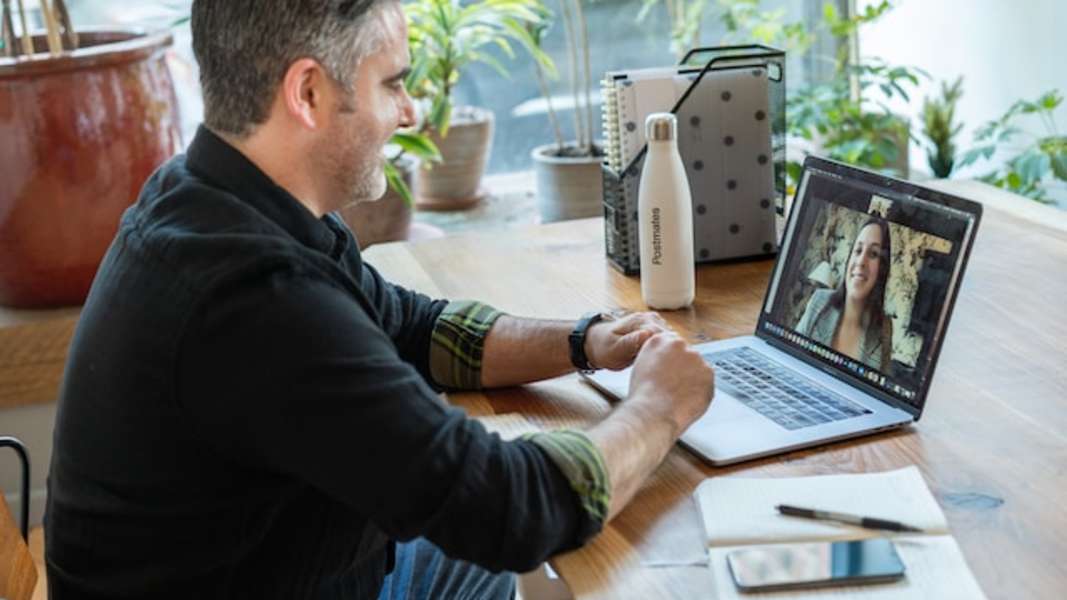What Is A Zoom Interview?
A Zoom interview is a type of interview that is completed remotely, using the popular video conferencing tool Zoom.
Zoom has been around since the company was launched back in 2011, and the first beta version of the software allowed 15 people to connect for a video chat.
Since then, the technology has grown and developed, with solutions for personal (free) use and businesses, right up to Enterprise-level.
Using Zoom, it is possible to share a video conference with hundreds of participants, share screens, complete presentations, and even mimic in-person conferences and training days with breakout rooms.
Even before the pandemic, it was becoming more normal for Zoom to be used as part of the interview process, and now more than ever it is helping to create connected workspaces even if they are geographically apart.
Why Do Companies Use Zoom Interviews?
Zoom interviews are not just used for remote hiring - they are also used as replacements for in-person interviews in all sorts of different businesses.
Using Zoom for the interview can help prevent unnecessary travel and reduce the costs of hiring - and because the meetings can be recorded, they can be viewed and discussed with members of the hiring team that could not be there on the day.
For the candidate, they get the same experience of an in-person interview, with the same type of questions, without having to leave their home - making it fast and convenient for everyone.
Types of Zoom Interviews
There are two main types of interviews that are conducted using Zoom.
One-on-one interviews are usually just that - you and an interviewer. The interviewer might be a member of the recruitment team or a hiring manager, and in some cases, it might be the person who will be your manager should you get the role you have applied for.
A panel interview might be used in higher-level recruiting, for executive or management positions. The panel will consist of several different people, including members of the recruitment team, hiring managers, and senior executives from the company you have applied for.
For you as the interviewee, the experience will be broadly similar - you will still need to connect to the meeting in the usual way - there just could be more than one person on your screen.
Typical Format For A Zoom Interview
A Zoom interview will typically follow the same format as a face-to-face interview - just with some extra steps beforehand.
The interviewer or hiring company will usually send you an email with the meeting link in it, and a password that you will need to join the Zoom meeting.
Once connected, the interview will start in the same way as you might expect, with greetings and introductions.
The interviewer will then start asking the questions they need to ask so that you can be evaluated, and there will be some time at the end for you to ask some questions too.
After the meeting has ended, all you need to do is disconnect.
Technical Preparation for a Zoom Interview
Any interview needs preparation, but when it comes to using software and technology like Zoom, it is always best to be even more prepared.
If you do not already have Zoom installed, download it well before your interview starts. This will give you the opportunity to get used to the software and make sure that it is all working properly.
For ease, Zoom is available on pretty much all devices, including smartphones - but if you are going to be using it for an interview, it is best to install it on a laptop or a PC. Just remember that it is a video and audio platform, so you need to have a camera and a mic as well as headphones or speakers available.
If you can, do a test meeting before you connect with the interviewer, because this will help you get everything working properly - you’ll know that you can be seen and heard and that the other person or people will be able to see you too.
Many connection or clarity issues with Zoom come down to poor internet connection, so either make sure that your WiFi is working fast or set up a wired connection to the router for best results.
Personal Presentation and Appearance
This is still an interview, even if you might be taking it in your bedroom - so you still have to make a good impression.
You need to present yourself professionally, which means dressing as well as you would if you were attending a physical interview.
However, that is not all you need to think about when you are in a Zoom interview - the interviewer will also be able to see whatever is behind you.
There are some things that you can do to make this more attractive - either sit in front of a blank wall, or ensure that there is nothing that could be distracting behind you.
Zoom does offer backgrounds that you can superimpose on your video, but these might not always be appropriate, so choose wisely if you are going to do that. The other option that is available is to blur the background, which might be a good choice if you are concerned.
The interviewers also want to be able to see you. Try and find somewhere with good natural lighting if you can, although artificial lights can work just as well if they are used properly. Make sure that the camera can see your face and your torso, so that the interviewer can read your body language while you are talking.
Preparing for Interview Questions
When preparing for the Zoom interview, remember that they are going to ask you similar questions to the ones you would have had in an in-person interview, and treat it the same way.
You should have already completed a lot of research about the company and the wider industry, so make sure that this is fresh in your mind. They may want to discuss your resume with you, so have that to hand as well.
There are a few different types of questions that you might be asked, and getting some answers in your head already will help you to feel a bit more relaxed.
Some of the questions that you might be asked could include:
- Motivational questions: Why do you want to work here? What are your career goals? These questions are about how you chose to apply for this role, and why this company attracted you in the first place.
- Behavioral questions: These are questions that you will need to answer by providing examples from your past experience, and they are usually tied to certain soft skills and competencies that are needed for the role. They might be something like ‘Tell us about a time when you had to work as part of a team’.
- Experience questions: These are the questions that will be looking for more detail about the information in your resume, and you might be asked about your experience working in a particular role or during your education.
Using the STAR interview method can be an effective way to structure your answers.
At the end of the interview, you will usually be invited to ask any questions you might have, so you might want to prepare something to ask here.
Key Challenges in Zoom Interviews
Addressing Technical Difficulties
Relying on technology means that difficulties can arise - and it doesn’t have to be dramatic if it does happen. If you lose connection, have a problem with your audio, or your video is lagging out, just explain it to the interviewer. They will be used to things like this happening, so just relax and take the time you need to fix it.
Building Rapport and Making a Connection Remotely
You cannot greet the interviewer with a firm handshake over Zoom like you can when you meet them in person, which means it can be difficult to build rapport and make a connection.
However, it can still be done - you just need to be aware of the fact that you are on video.
Start with a warm, professional greeting, and be mindful of your body language throughout the call. They want you to maintain eye contact like you would in the in-person interview, so look at the camera lens when you can.
Adjusting to Unexpected Changes in the Interview Format
Things can change in the interview process, and it is not unusual for changes to be jarring - but don’t let that affect your focus when it comes to doing your best in the interview.
Remain positive anyway - it is a good demonstration of your adaptability and flexibility for you to be able to cope when things change.
Tips for a Successful Zoom Interview
1) Eliminating Distractions and Interruptions
Ensure that the people you live with know that you are having an interview so that you won’t be disturbed by them. Turn off any notifications on your phone and on your laptop, and close any other open tabs so that you can stay focused on the interview.
2) Taking Notes and Staying Engaged
You might want to take some notes in the interview, and it is likely that the interviewer will be taking notes - just be mindful not to pay too much attention to note-taking and be in the moment so that you don’t miss anything.
3) Asking Thoughtful Questions About the Company and Role
When the time comes to ask your questions, you want to show the recruiter that you have thought about this role and the company properly.
This might mean thinking about asking questions that are about the future of the role or the company, or about something mentioned on the website, rather than just asking about the pay or benefits.
4) Exhibiting Active Listening Skills
It is hard to show you are listening remotely, but remember that you can be seen throughout the process - so you might want to nod along as the interviewer is talking, or verbally agree with things. You might also think about repeating the last few words that they have said when answering a question to show you are taking notice.
5) Expressing Gratitude and Interest in the Position
Always make sure to say thank you to the interviewer for their time at the end of the interview. You would do the same in an in-person meeting, so it is important to show that you are grateful. You can also reiterate your interest in the position at this point as well.
6) Inquiring About the Next Steps in the Hiring Process
The end of the Zoom interview is a good time to inquire about the next steps; this shows you are still interested and also helps you get an understanding of what sort of time frame you can expect to hear back from the recruitment team, which will help you be prepared.
7) Sending a Thank-You Email After the Interview
Sending a little thank you email after the interview is not only good manners, it helps keep your interview at the top of mind for the recruitment team.
It doesn’t need to be long, just a few lines to say thanks and that you are looking forward to hearing from them about the outcome.


